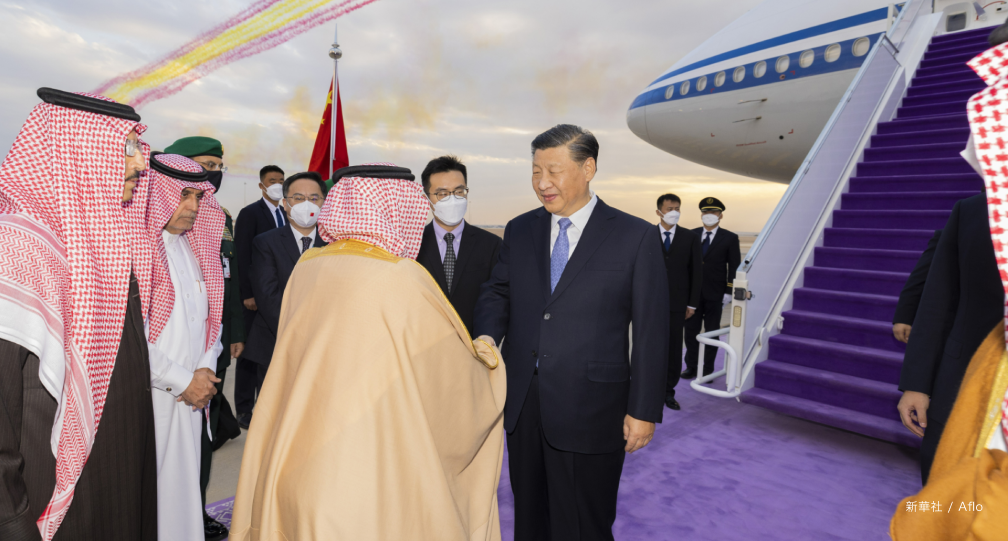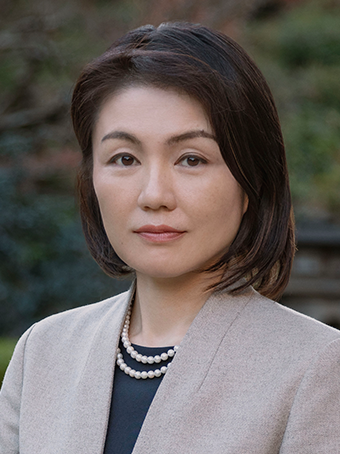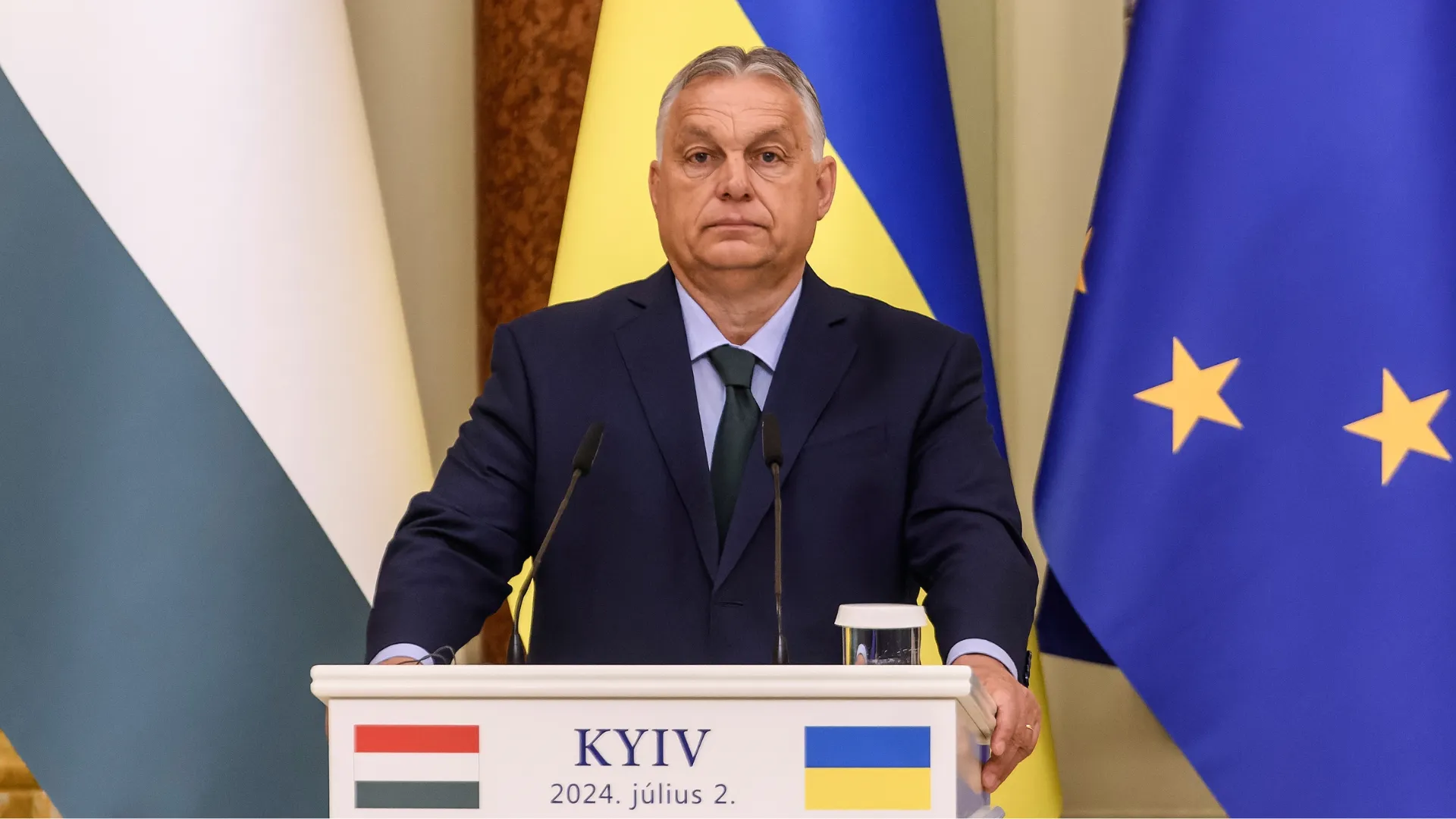China’s vision of an international order firmly in the shadows of the G7

Both issues reflected a hidden proposition — relations with China.
While addressing the significance of working closely within the G7, each member country has its own intentions regarding whether to expect Beijing to mediate between Russia and Ukraine, and how to balance between China’s economic risks and benefits.
What creates gaps between the countries’ stances on these points is the difference in how they recognize the current situation in terms of assessing China’s international influence, and their long-term strategy as to what kind of a role they want Beijing to play within the international order.
As Chinese leader Xi Jinping’s administration stresses its determination and ability to lead global governance as a superpower and launches a wide range of diplomatic offensives, on what points did G7 leaders find strategic common ground?
China’s intentions
In order for G7 countries to act in concert regarding China, they need to properly assess the competence and direction of Beijing’s diplomacy.
However, the situation remains uncertain, with hopes for China rising to some extent in recent months as the country actively conducts mediation diplomacy.
On March 10, Beijing surprised the world by brokering a deal between Iran and Saudi Arabia to restore diplomatic relations.
Then Xi paid a visit to Russia starting on March 20 and met with Russian President Vladimir Putin.
As Beijing announced its position on the political settlement of the Ukraine crisis in February, expectations grew among some over the possibility of China also playing a certain mediatory role in the Russia-Ukraine war.
On April 26, Xi had a telephone call with Ukrainian President Volodymyr Zelenskyy, and said that China has always been on the side of peace regarding the Ukraine crisis and that its basic position is to promote a peace dialogue.
In May, Beijing sent Li Hui, former Chinese ambassador to Russia, to visit five countries including Ukraine and Russia and the parts of the European Union as a special envoy.
Such moves are apparently aimed at building anticipation within the global community that China can play a role in the Russia-Ukraine crisis, based on its successful mediation between Iran and Saudi Arabia.
Another issue China has focused on is Afghanistan.
On April 12, China’s Foreign Ministry released a position paper on issues relating to the country and urged the U.S. to “live up to its commitments and responsibilities to Afghanistan.”
It opposed unilateral sanctions and external interference and infiltration in the country.
Chinese Foreign Minister Qin Gang attended the 4th Foreign Ministers’ Meeting among the Neighboring Countries of Afghanistan held in Samarkand, Uzbekistan, on April 13, followed by a meeting with Pakistani Foreign Minister Bilawal Bhutto Zardari and Amir Khan Muttaqi, foreign minister of the Afghan interim government, in Islamabad on May 6.
By showing its intention to contribute to Afghanistan’s stability, China is apparently trying to appeal to global public opinion.
In addition, on May 2, Qin traveled to Myanmar, the first Chinese foreign minister to do so since the 2021 military coup.
He met Myanmar’s top general, Min Aung Hlaing, and stressed that China always attaches great importance to developing neighborly and friendly relations with Myanmar, adding that Beijing supports Myanmar in improving relations with its neighbor Bangladesh.
Beijing has been showing a stance of actively getting involved in issues faced by Europe, the Middle East and Southeast Asia.
While the possibility of those issues being resolved is low, China can at least make the nations concerned feel the situation may change for the better with its involvement.
In other words, Beijing’s actions can be interpreted as laying the groundwork for increasing its presence in the international community.
Three initiatives
China, which is eagerly making diplomatic offensives, presents a global vision of promoting a “community with a shared future for mankind” and three initiatives through which it will achieve this goal.
“Community with a shared future for mankind” is a phrase that calls on other countries to work together to build an open, inclusive, clean and beautiful world that enjoys lasting peace, universal security and common prosperity.
Simply put, it is the goal of propaganda to form an image of China striving for a better world.
Under China’s logic, the vision is set as an ultimate goal supported by three pillars of diplomatic initiatives: the Global Development Initiative (GDI), the Global Security Initiative (GSI) and the Global Civilization Initiative (GCI), proposed by Xi himself in September 2021, April 2022 and March 2023, respectively.
In addition, the Belt and Road initiative is presented as specific means to achieve the goals.
Among the three initiatives, the GDI appears to be the most workable.
As this writer pointed out in a previous article in this series (China’s bid to wage cognitive warfare over democracy and human rights by ETO Naoko), development under the GDI is the key notion for China to exert influence using its economic power.
The GDI is a rehash of the United Nations’ 2030 Agenda for Sustainable Development and at the same time resonates with China’s own concept of human rights — the rights to survival and development.
In other words, it is a narrative based on China’s long-time diplomatic strategy and its stance of putting emphasis on economic development is readily acceptable to the countries of the Global South.
Meanwhile, it can be said that the GSI and GCI represent more of a conceptual narrative, considering China’s current competence regarding security and values.
Then why does the Xi administration propose a global vision beyond its competence?
It is basically a part of efforts to shape global narratives in order to be at an advantage in China’s relationship with the U.S. — but it is not mere propaganda.
China’s Foreign Ministry newly unveiled the GSI concept paper on Feb. 21, again addressing the initiative as a comprehensive security principle.
It is noteworthy that the paper listed as one of its six commitments “peacefully resolving differences and disputes between countries through dialogue and consultation.”
It is likely that working-level officials involved in diplomacy regard the GSI as a diplomatic goal that needs to be met.
One of the reasons behind Beijing’s active mediation diplomacy may be changes in China’s domestic political environment linked to such concepts.
Strategic messages
Although it is largely theory-driven, China is showing its willingness to actively commit itself to global peace.
So what kind of a message should the G7 send out? The key phrase is the “free and open international order based on the rule of law.”
The G7 countries including Japan have often used the expression “rules-based international order” as their shared concept, but since the G7 foreign ministers’ meeting held in April, they began to focus on the term “rule of law.”
It may appear only as a slight adjustment made to the expression, but the change apparently reflects the intention to fend off claims within the Global South over who will set the rules for the rules-based international order and their calls for the need to modify the existing international order set in favor of developed countries.
Moreover, in Chinese politics, advocating the rule of law could mean criticizing the Chinese Communist Party’s single-party regime.
There is a political term in China, yifazhiguo, meaning to rule according to the law. But the term is widely interpreted as actually meaning “rule by law” — a concept that sees the governing authority as somehow being above the law — rather than the rule of law.
Such an interpretation has emerged because while the Chinese government does not deny the rule of law, the Communist Party’s administration as the governor effectively stands above the law.
The G7 countries upholding the rule of law — meaning that all people, including those who govern, are all equal under the law — aims to put a check on dictatorship and authoritarianism, and at the same time is an attempt to bring international public opinion back from conflicts of values to principles that everybody must accept.
It is a constructive stance of showing the direction in which the international order should head to and can be praised as a message sent out by G7 nations, which share liberal norms.
We should not forget that the future of global governance is determined not only by hard power — the use of economic or military might — but also by principles.

Geoeconomic Briefing
Geoeconomic Briefing is a series featuring researchers at the IOG focused on Japan’s challenges in that field. It also provides analyses of the state of the world and trade risks, as well as technological and industrial structures (Editor-in-chief: Dr. Kazuto Suzuki, Director, Institute of Geoeconomics (IOG); Professor, The University of Tokyo).
Disclaimer: The opinions expressed in Geoeconomic Briefing do not necessarily reflect those of the International House of Japan, Asia Pacific Initiative (API), the Institute of Geoeconomics (IOG) or any other organizations to which the author belongs.


Visiting Senior Fellow
Naoko Eto is a professor in the Department of Political Science at Gakushuin University. Her main research interests include East Asian affairs and Japan-China relations. She is a member of the Expert Committee on Industrial and Technological Infrastructure Strengthening for Economic Security at the Ministry of Economy, Trade and Industry (METI), Industrial Structure Council, METI and the Customs and Foreign Exchange Council at the Ministry of Finance (MOF). She was also a visiting research fellow at the School of International Studies, Peking University, the East Asian Institute, Singapore National University, and a visiting senior fellow at the Mercator Institute for China Studies. [Concurrent Position] Professor, Department of Political Science, Gakushuin University
View Profile-
 Fed-Treasury Coordination as Economic Security Policy2026.02.13
Fed-Treasury Coordination as Economic Security Policy2026.02.13 -
 Challenges for Japan During the U.S.-China ‘Truce’2026.02.12
Challenges for Japan During the U.S.-China ‘Truce’2026.02.12 -
 India and EU Sign Mother of All Deals2026.02.09
India and EU Sign Mother of All Deals2026.02.09 -
 Orbán in the Public Eye: Anti-Ukraine Argument for Delegitimising Brussels2026.02.04
Orbán in the Public Eye: Anti-Ukraine Argument for Delegitimising Brussels2026.02.04 -
 Trump, Takaichi and Japan’s Strategic Crossroads2026.02.03
Trump, Takaichi and Japan’s Strategic Crossroads2026.02.03
 Oil, Debt, and Dollars: The Geoeconomics of Venezuela2026.01.07
Oil, Debt, and Dollars: The Geoeconomics of Venezuela2026.01.07 Orbán in the Public Eye: Anti-Ukraine Argument for Delegitimising Brussels2026.02.04
Orbán in the Public Eye: Anti-Ukraine Argument for Delegitimising Brussels2026.02.04 When Is a Tariff Threat Not a Tariff Threat?2026.01.29
When Is a Tariff Threat Not a Tariff Threat?2026.01.29 Fed-Treasury Coordination as Economic Security Policy2026.02.13
Fed-Treasury Coordination as Economic Security Policy2026.02.13 A Looming Crisis in U.S. Science and Technology: The Case of NASA’s Science Budget2025.10.08
A Looming Crisis in U.S. Science and Technology: The Case of NASA’s Science Budget2025.10.08












